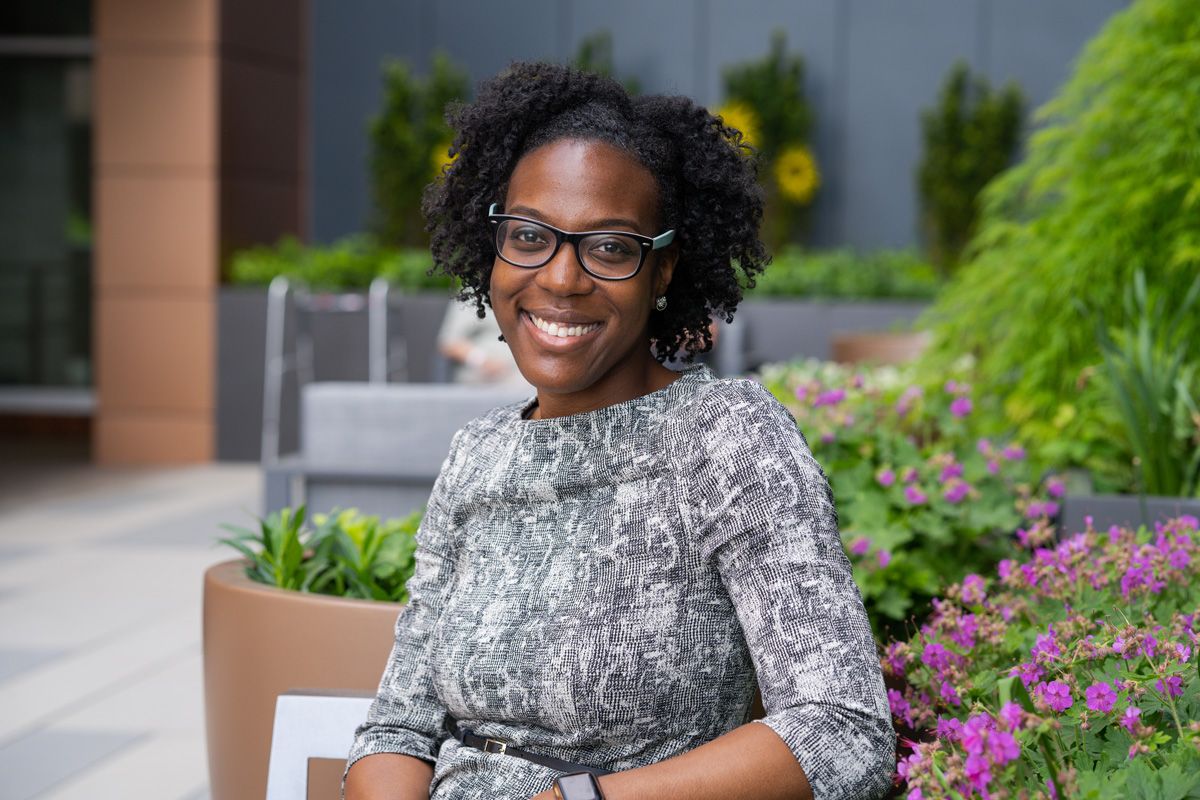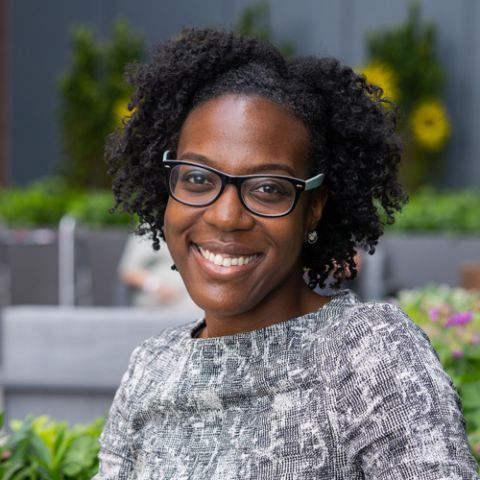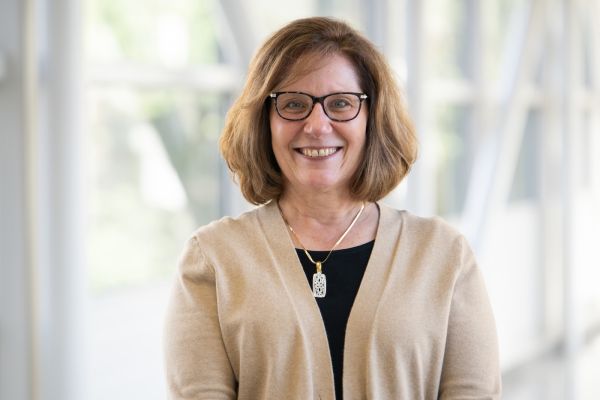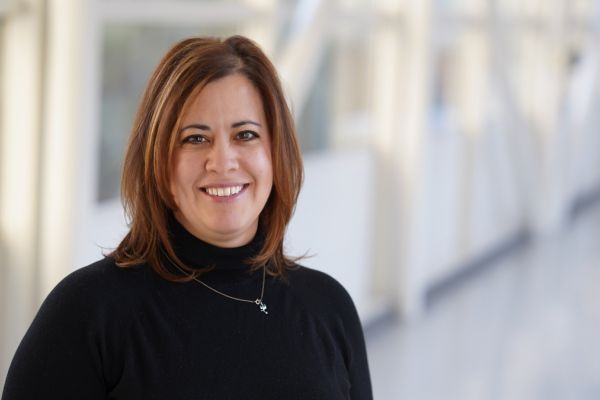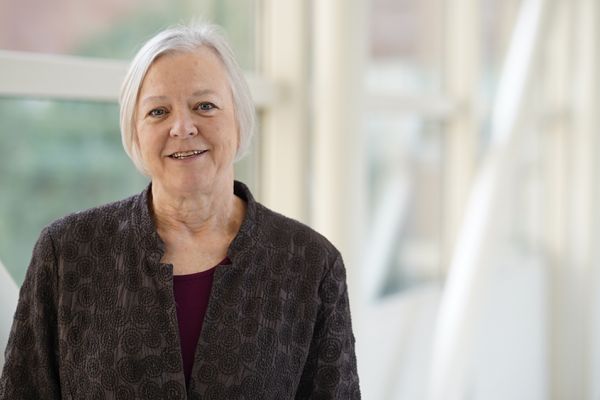Kimberly Wooten, MD, learned early on — even before she started medical school — the importance of always telling patients the truth.
Her grandfather was diagnosed with metastatic lung cancer the summer before she began her medical education at the University of Florida College of Medicine. In the following weeks, Wooten witnessed his doctors failing to tell him and her family that his treatments weren’t working and that he was dying.
“We were told after his initial treatment that he responded well,” she recalls. “Unfortunately, the communication between his oncologists and my family was poor. We did not know about the progression of my grandfather’s disease and his ultimate dire prognosis until one week before his death.”
Dr. Wooten says the family also wasn’t given options for his treatment or palliative care. She suspects the doctors paid less attention to her grandfather because of his race and financial position.
“My impression was always that the doctors dismissed him and us because he wasn’t wealthy and was Black,” she adds. “They lacked empathy. They lacked compassion. They were not forthcoming and didn’t feel it was necessary to provide us with information that may have changed our decisions during the time he had left.”
Inspired to focus on oncology
Today Dr. Wooten is a cancer surgeon at Roswell Park Comprehensive Cancer Center, having chosen to pursue a career in oncology based on the inferior care given her grandfather, who died just months after she started medical school.
“The experience galvanized me to want to change the way we communicate with our patients, especially in vulnerable times of need,” she says.
She notes that head and neck cancer patients often don’t garner community support, because many are socially marginalized, and their perspectives often are not heard.
“My patients are as diverse as they come, not only in their type of cancers, but in who they are as people, where they come from and what they do,” Dr. Wooten says.
“Unfortunately, our patients are often stigmatized because, unlike other cancers — like breast cancer or prostate cancer — head and neck cancers are associated with ‘perceived vices,’ such as alcohol use or tobacco use, that often espouse judgment rather than empathy from others. Because of this prejudice, and less exposure to and education about head and neck cancers in general, they tend to have fewer advocates and are more likely to have a poor support system.”
Caring includes having difficult conversations
Dr. Wooten strives to educate her patients, their families and the public on preventative measures for these diseases. And she works on communicating with patients as clearly and compassionately as possible.
One of Dr. Wooten’s patients had end-stage cancer. The patient was on and off chemotherapy, which made her “horribly ill,” and she required frequent hospitalizations, preventing her from spending time with her family, Dr. Wooten recalls. “She was afraid that if she stopped the chemotherapy, she would be giving up the fight to stay alive.”
So she sat down to have an honest talk with the patient.
“We discussed the nature of the disease, and her prognosis from an honest, transparent perspective, one that laid out all of her options,” Dr. Wooten says. “She had not had this frank discussion before with her other treating physicians. We discussed end-of-life care, palliative services and other ways to improve her quality of life for the time she had remaining. She eventually decided what was most important to her was a good quality of life, and by choosing her own path, she was able to spend her last few weeks with her family, prior to a peaceful passing at home.”
Never miss another Cancer Talk blog!
Sign up to receive our monthly Cancer Talk e-newsletter.
A surgeon from the start
Dr. Wooten says she developed a passion for surgery at a young age, and credits senior residents and fellows with steering her into specializing as a head and neck surgical oncologist.
“During my general surgery residency, I wanted to focus primarily on oncology, but it wasn’t until I rotated on head and neck surgical oncology that I knew I had found my tribe — challenging and diverse procedures and a stigmatized patient population whose concerns are often ignored,” she recalls.
She describes a laundry list of procedures she learned with enthusiasm.
“The procedures in this field are vast: thyroidectomies, composite resections for cancers of the mouth, face, ears, eyes, nose, cheek, tongue and voice box, with various reconstructive options, minimally invasive approaches, and use of robotic techniques to treat disease as well,” she says.
Surgery is the primary treatment option for many head-and-neck cancer patients, Dr. Wooten says. But she welcomes “the ability to be challenged and ultimately improve the lives of those I serve, even if they are treated without surgery.
“We all have something that draws us to care for others in this way and compels us to strive for excellence. We must all have empathy and a sense of pride in what we do, as both are critical, but I think what makes me different is my humility and gratitude toward those I serve every day.”
She adds that she is proud to have mastered another skill.
“I am willing to admit when I don’t know. This allows me to respect the process, and respect every surgery that I perform, no matter how routine or simple.”
And who initially taught her this skill?
“It was my grandfather who once told me to always be willing to say, ‘I don’t know.’
And now I know why he said this. It is from there that you can always grow.”
